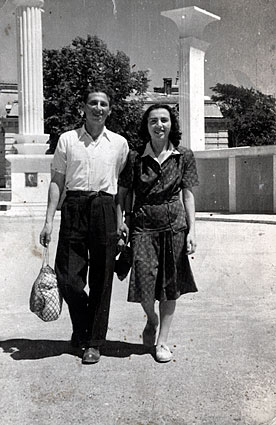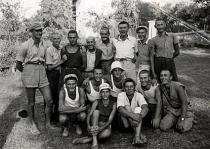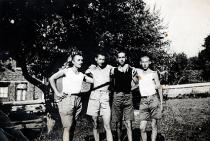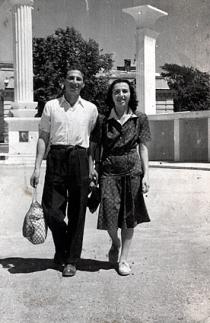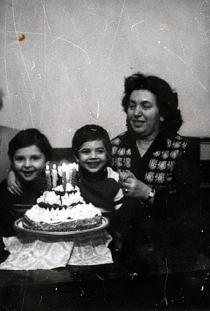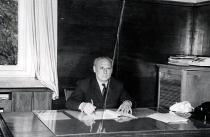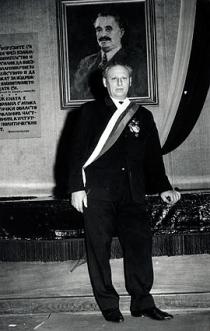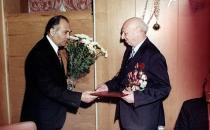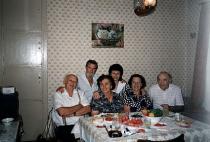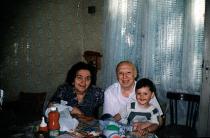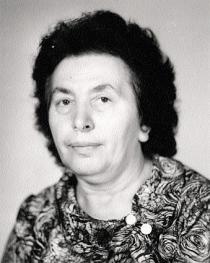This is me and my wife Bela in the Sea Garden in Varna in 1948. This is a photo taken during our holiday in Varna.
I met my wife Bela Alfandari in 1945. At that time we were UYW members and we had to prepare a wall-newspaper. We gathered on 6 Gurko Street in the UYW club. I accompanied her to her house on the way home and we became friends. We married on 19th September of the same year. Ours was one of the first civil marriages in Ruse. She was born in Ruse. She is a hairdresser and has two sisters; she was the youngest and the first to marry. Her sisters' names are Victoria Markus and Ester Alfandari. Both are now in Israel. Ester Alfandari lives in Rishon Le Zion; she has a son, who is a doctor. Victoria lives near Haifa.
We have two daughters - Sonia, born in 1946 and Roza, born in 1953. Our children were raised to feel Jewish by their grandparents, Menahem and Roza Alfandari, Bela’s parents, who were quiet people. They were very religious and observed all the traditions. They taught our children about Jewish cuisine and our holidays: Pesach, Yom Kippur, Rosh Hashanah, Sukkot, Lag ba-Omer. They observed them at home. Of course, we also went to the synagogue. There were three synagogues in Ruse; two for Sephardi Jews and one for Ashkenazi Jews. Various religious rites were performed in the two Sephardi synagogues, which were called the 'small' and the 'big' synagogue. During the week the prayers were performed in the small synagogue. My family usually went to the big synagogue. On Erev Sabbath and on Jewish holidays the Torah was read in the big synagogue. In it every family who had paid a voluntary fee had their own seat. On prayer days such as Pesach, Yom Kippur and Rosh Hashanah, women also came into the synagogue and sat separately from the men on the balcony.
